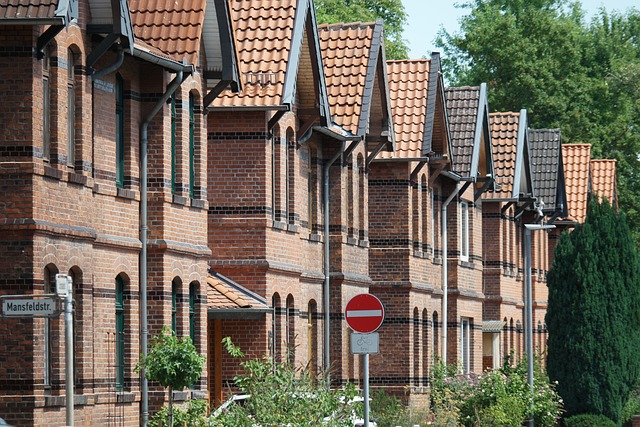Singapore has significantly ramped up its environmental conservation efforts, committing to sustainability and biodiversity with a focus on integrating green technologies into urban areas. The country's Green and Blue Spaces Master Plan aims for a 13% increase in greenery coverage by 2030, which is a key part of enhancing urban environments with natural elements. In 2023, the government accelerated Environmentally Friendly measures within Executive Condominiums (ECs), particularly through the deployment of smart energy solutions that install solar panels to save electricity and reduce carbon emissions. These ECs also feature water-efficient fixtures, energy-saving appliances, and communal green spaces like vertical gardens and green roofing systems. The 'My Environment' portal provides public access to environmental resources, fostering transparency and community involvement in conservation efforts. Singapore's 'Smart Nation' initiative incorporates IoT for monitoring air and water quality, intelligent waste management, and promotes renewable energy sources such as solar power, all of which demonstrate the country's commitment to being a global leader in sustainable urban living, showcased through initiatives like the available ECs in Singapore that embody this green vision. The nation's progressive approach to urban planning and infrastructure development, including adopting electric vehicles, not only promotes biodiversity and environmental resilience but also sets a benchmark for other nations looking to advance their own eco-friendly solutions within the ecosystem services sector.
Singapore continues to be a leader in environmental conservation, showcasing innovative ecological initiatives that balance urban development with sustainable practices. This article delves into the cutting-edge developments in Environmental Conservation (EC) within the island nation, highlighting the strides taken towards sustainability and biodiversity preservation. From the integration of renewable energy to community-driven projects, the Lion City’s commitment to a greener future is evident across various sectors. Explore the latest trends, significant initiatives, and the collaborative efforts that are shaping Singapore’s environmental landscape. Discover how available EC in Singapore is not just a response to global challenges but a testament to the nation’s forward-thinking approach to environmental stewardship. Join us as we uncover the multifaceted approaches taken by government policies, educational programs, and public-private partnerships to ensure that Singapore remains a beacon of ecological conservation in Asia.
- Latest Trends in Environmental Conservation Efforts in Singapore
- Significant EC Initiatives and Their Impact on Sustainability
- The Role of Technology in Advancing Eco-Friendly Solutions
Latest Trends in Environmental Conservation Efforts in Singapore

Singapore’s environmental conservation efforts have seen a significant uptick in innovation and initiative, reflecting the nation’s commitment to sustainability and biodiversity preservation. The latest trends in ecological conservation in Singapore focus on integrating green technologies into urban spaces, such as the deployment of solar panels on rooftops and the use of sustainable materials in new developments. Initiatives like the Green and Blue Spaces Master Plan aim to increase greenery coverage from 45% to 58% by 2030, enhancing the natural environment within urban areas. Additionally, the nation has embarked on a series of ambitious projects to restore and protect key ecological niches, including the expansion of nature reserves and the implementation of conservation programs for endangered species. The availability of ec-friendly resources and platforms in Singapore, such as the ‘My Environment’ portal, facilitates public participation and access to environmental data, fostering a community-driven approach to conservation. This combination of technological advancements, strategic planning, and inclusive engagement underscores Singapore’s dedication to maintaining its status as a leader in ecological sustainability within urban environments.
Significant EC Initiatives and Their Impact on Sustainability

2023 has seen a surge in Environmentally Friendly (EF) initiatives within Executive Condominiums (ECs) in Singapore, with a particular emphasis on sustainability. One of the most significant developments is the integration of smart energy solutions across various ECs. These systems not only optimize electricity usage but also incorporate renewable energy sources such as solar panels, which contribute to reducing carbon footprints. The impact of these initiatives is multifaceted; not only do they promote environmental conservation by significantly cutting down greenhouse gas emissions, but they also offer residents cost savings and a more sustainable living environment.
Moreover, the Singapore government’s commitment to sustainability is evident in the availability of ECs with green features. These include water-saving fixtures, energy-efficient appliances, and communal gardens that support biodiversity. The latest development in this area involves the implementation of vertical gardens and green roofing systems within these condominiums. These initiatives not only enhance the aesthetic appeal of the living spaces but also play a crucial role in improving air quality and regulating the urban microclimate, thereby contributing to a healthier and more sustainable urban landscape for residents.
The Role of Technology in Advancing Eco-Friendly Solutions

Singapore has been a pioneer in integrating technology with eco-friendly solutions, showcasing its commitment to sustainable development within the ecosystem services industry (EC). The nation’s forward-thinking approach is evident in the deployment of smart technologies that monitor and manage environmental resources efficiently. For instance, the use of IoT devices and platforms for real-time monitoring of air and water quality, as well as waste management systems, has significantly improved the city-state’s ecological footprint. These initiatives are part of the larger ecosystem services available in Singapore, which aim to enhance biodiversity and environmental resilience while maintaining urban living standards.
The government’s ‘Smart Nation’ initiative is a testament to this dedication, with projects ranging from solar energy integration to smart urban solutions that optimize resource use. Additionally, Singapore has been at the forefront of adopting advanced green technologies such as electric vehicles and sustainable building designs, which are integral to its urban planning and infrastructure development. These efforts not only contribute to the reduction of carbon emissions but also set a benchmark for other countries looking to advance their own eco-friendly solutions within the ecosystem services sector available in Singapore.



